Racial Blind Spot: An Islamic Scholar’s Offesive Words And Black American Muslims’ Response
By Nisa Islam Muhammad -Staff Writer- | Last updated: Jan 4, 2017 - 2:46:38 PMWhat's your opinion on this article?

|
The Reviving Islamic Spirit conference held in Toronto usually comes and goes with little fanfare. All of that changed during the 15th annual gathering as the audience and social media erupted at remarks made by Islamic scholar Sheikh Hamza Yusef.
During an interview by British political journalist Mehdi Hassan, Mr. Yusef was asked about Muslims, the Black Lives Matter movement and whether Muslims should support the movement for racial justice while asking for support in the fight against Islamophobia? Mr. Yusef responded dismissively and with misleading statistics. “A lot of the problems in the United States with the Black community being shot by the police, we have about 15,000 to 18,000 homicides a year, 50 percent are Black on Black crime.” he said. More Whites are killed by police but those videos aren’t shown, said Mr. Yusef. According to Mapping Police Violence, police killed at least 263 Black people in the U.S. in 2016. And, as the Washington Post reported earlier this year, “there are nearly 160 million more white people in America than there are black people.
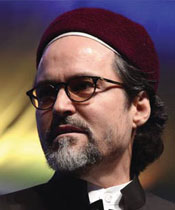
Sheikh Hamza Yusef
|
The interview continued with Mr. Yusef minimizing police brutality in the Black community and calling President-elect Donald Trump a servant of God which angered many Muslims around the country.
That evening and the next day social media was a firestorm and if you were Muslim you had to live under a rock or in a cave not to have read what happened.
“His failure to simply affirm the need to champion Black suffering in light of police brutality before moving on to make his point painted him as insensitive. No! It did much worse. It made him sound like a number of the white nativists who are being courted by the Trump administration and have been nominated for cabinet positions,” said Mr. Yusef’s friend and colleague Abdullah bin Hamid Ali on Facebook.
But Mr. Yusef’s comments did not end with the Dec. 23 interview. He returned before the 30,000 in attendance the next day. He offered an “apology,” citing his fatigue from travel, his mother’s history of fighting for civil rights, his non-White friends and his experiences with those unfavorable to Islam. “I actually listened to the audio and I understand why some people got upset … my intention was never to offend or upset anybody,” he said. “It came off as insensitive to me, listening to it personally. So here’s a sincere apology to anyone who was offended.”
Then he said the real problem with Black people is not racism but the destruction of the Black family. It simply exploded the earlier uproar.
“What he said was very insensitive. He has no context for what’s going on in America. However, he manned up as a Muslim and apologized. As people around him have shown him the error of his words, we can either accept his apology or reject it,” said Abdul Akbar Muhammad, international representative of the Nation of Islam.
Responses to what Sheikh Hamza Yusef said ranged from charges he was insensitive to those who called him a racist. Mr. Akbar Muhammad doesn’t believe Mr. Yusef is racist. He attended the conference and was impressed with the variety of workshops that touched on the problems of race. “This year was the largest ever with 30,000 Muslims and 40 percent were of African descent. They kept coming back to these issues of race because they understand racism exists in Islam,” he said.
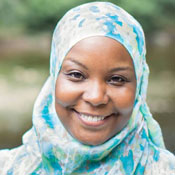
Kameelah Mu’Min Rashad, founder of the Muslim Wellness Foundation
|
Ms. Mu’Min Rashad didn’t respond by simply asking people to express their rage. She started a Twitter conversation, Dec. 26, on my #BlackMuslimFamily. Her aim was to show the reality of the positives and achievements of Black American Muslim family life, despite tremendous odds and racism.
“I wanted to be a buffer between all of that negativity and stand a clean glass. We can say all that he’s uninformed but what are we going to spend our time doing? We have to be more intentional on how we hold a mirror up for ourselves,” she said.
The #BlackMuslimFamily started at 6 p.m. EST and eight hours later it was trending Number 1 on Twitter. “That said this was necessary. It resonated with people. There are people and families who are proud of being a #BlackMuslim Family. Allah was all in this,” she said.
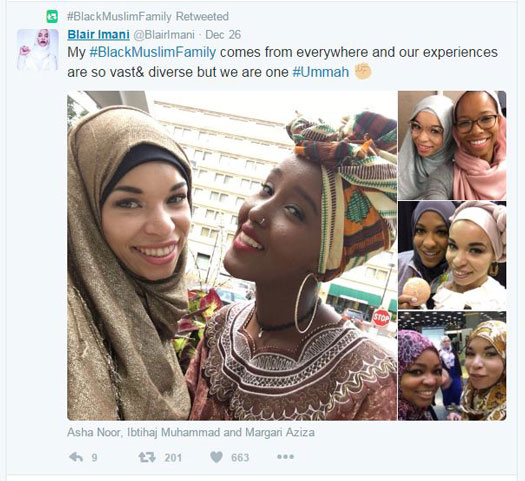
|

|
“The recent statements by Shaykh Hamza Yusuf were unfortunate and disparaging but not surprising. His subsequent apology is a humble beginning toward atonement and dialogue that confronts the pain inflicted by his admitted insensitivity of his statements,” commented Sultan Rahman Muhammad, national imam for the Nation of Islam. “The controversy exposed the chasm between Black suffering, the privilege of ‘Whiteness’ and the ever-present disease of arrogance, which continues to prove supremacism has crept into Islamic society in the form of racism, nationalism, sexism, classism and Arabism.”
The important question by interviewer Mehdi Hassan about the intersections of racism and Islamophobia was lost in the controversy, he noted.
“We must unapologetically confront the reality that racism, whether it be the racialization of Anti-Muslim hate, Anti-Black structures, or White liberalist policy it is a threat to Black and non-White life and liberty regardless of religion, nationality, creed or class. We must condemn the dismissal of legitimate grievances caused by the evil devastation of White supremacy wherever we identify its Satanic trait,” said the imam in a statement emailed to The Final Call.
Psychological and spiritual attacks that “intentionally or otherwise unintentionally” attack people are wrong and those who have been hurt by injustices in society should speak for themselves, he said. There is a need for collaboration to deal with “solutions to our shared struggle that we now face in the dehumanizing opposition of Islamophobia, discrimination and racism,” Imam Rahman Muhammad said.
“As Muslims in the West, these events underscore that Black voices, particularly Black Muslim voices in our diversity must continue to advance the vanguard position of a legacy of uncompromising struggle for the social transformation of our communities for Freedom, Justice and Equality that advocates for the oppressed peoples of the world,” he said.
(Final Call staff contributed to this report.)
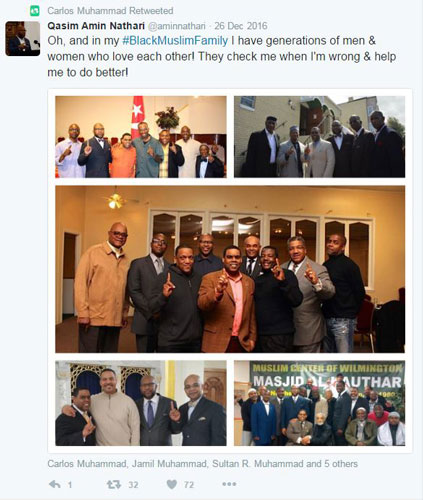
|

|
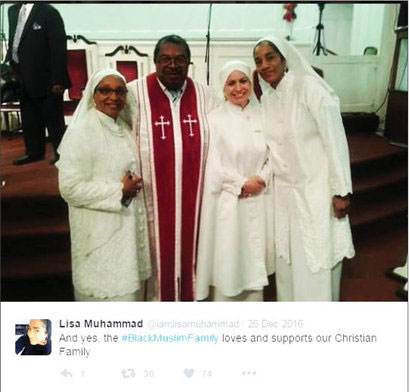
|
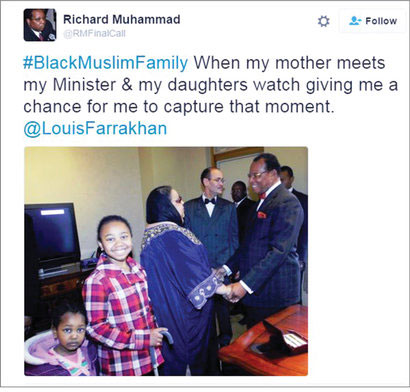
|
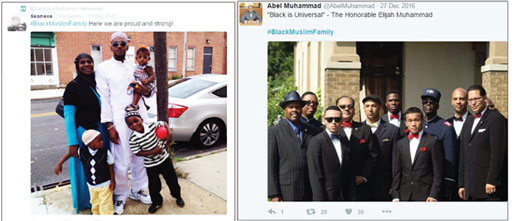
|
INSIDE STORIES AND REVIEWS
-
-
About Harriett ... and the Negro Hollywood Road Show
By Rabiah Muhammad, Guest Columnist » Full Story -
Skepticism greets Jay-Z, NFL talk of inspiring change
By Bryan 18X Crawford and Richard B. Muhammad The Final Call Newspaper @TheFinalCall » Full Story -
The painful problem of Black girls and suicide
By Charlene Muhammad -National Correspondent- » Full Story -
Exploitation of Innocence - Report: Perceptions, policies hurting Black girls
By Charlene Muhammad -National Correspondent- » Full Story -
Big Ballin: Big ideas fuel a father’s Big Baller Brand and brash business sense
By Bryan Crawford -Contributing Writer- » Full Story






 Click Here Stay Connected!
Click Here Stay Connected!








